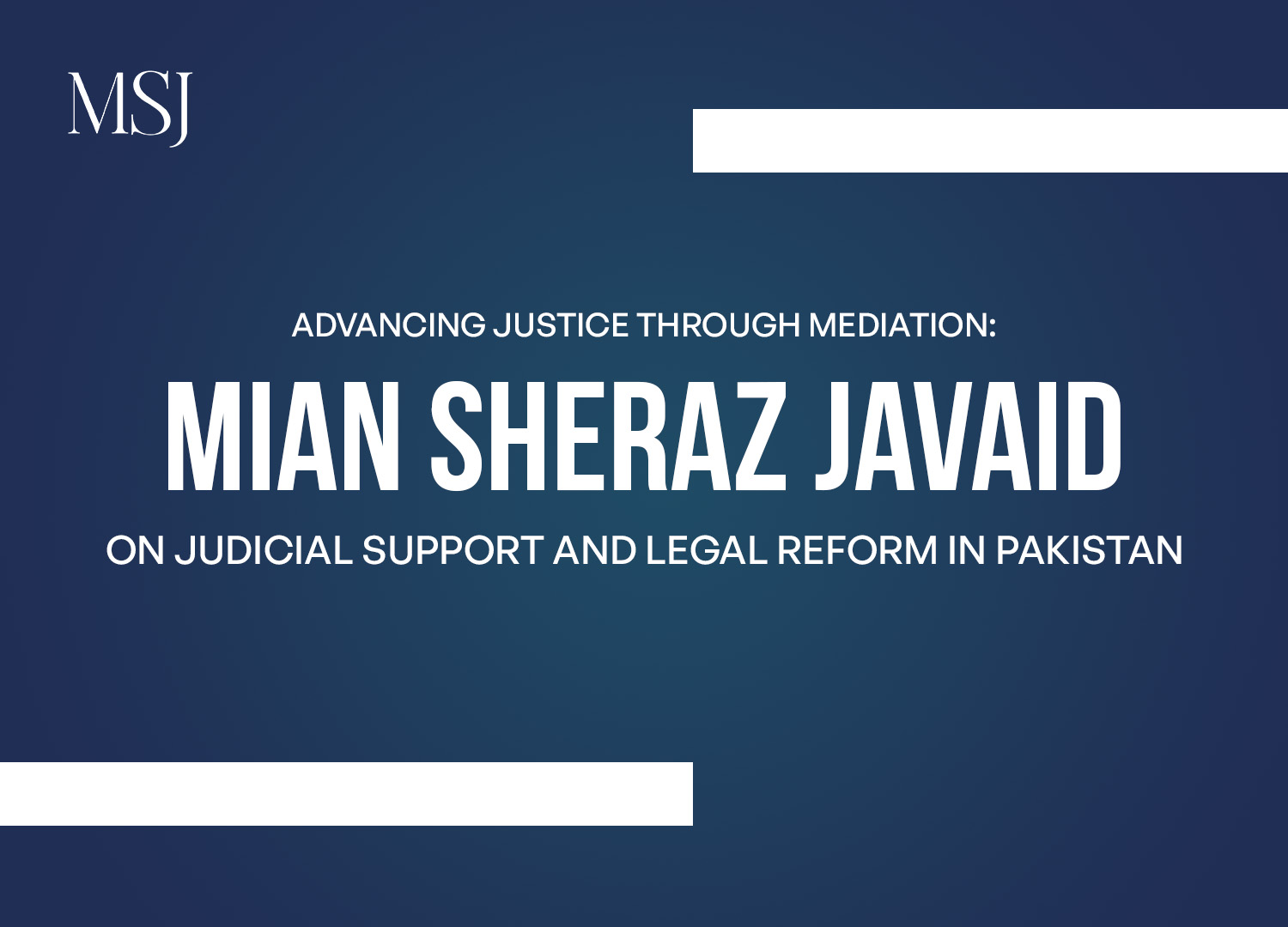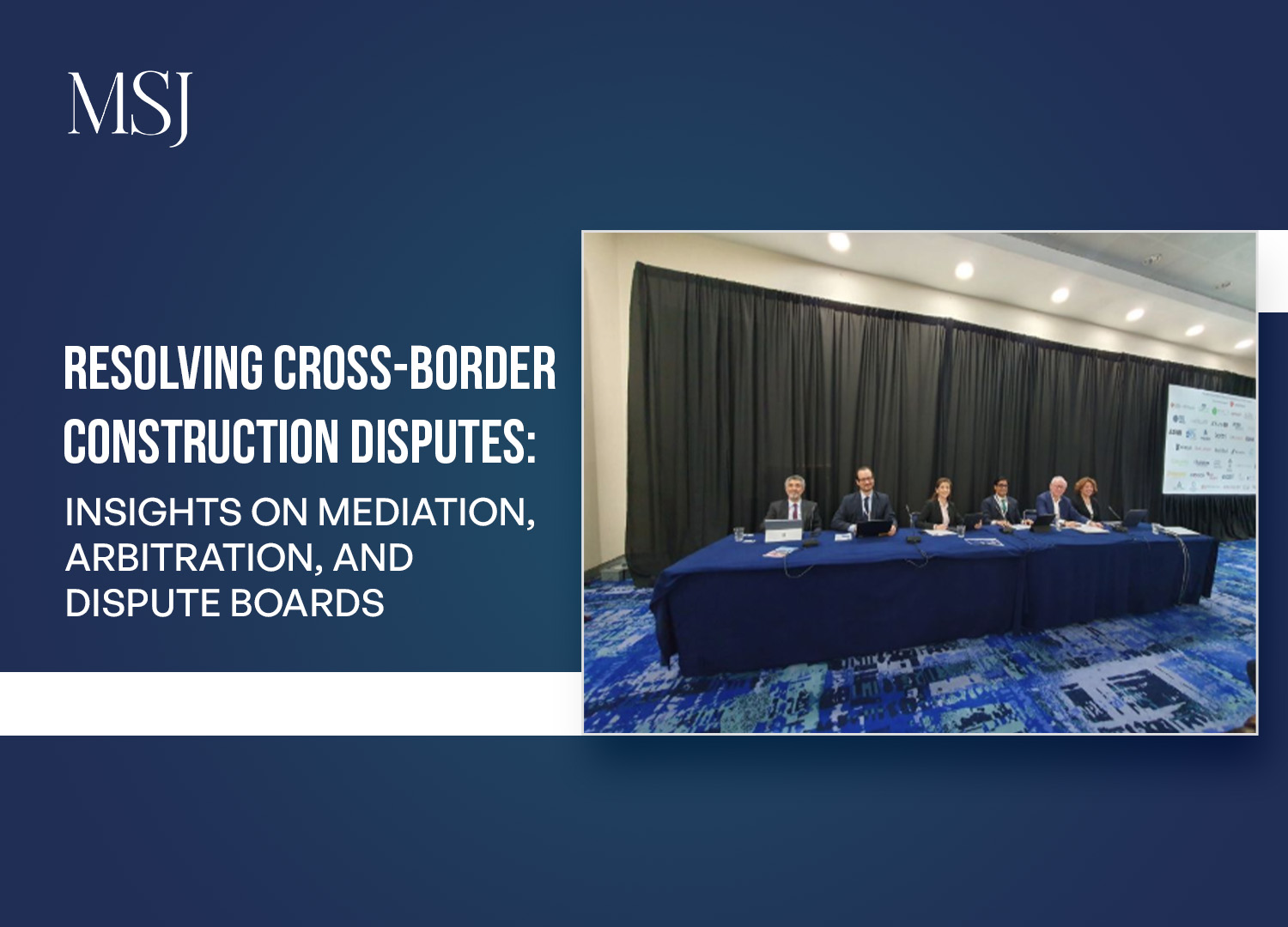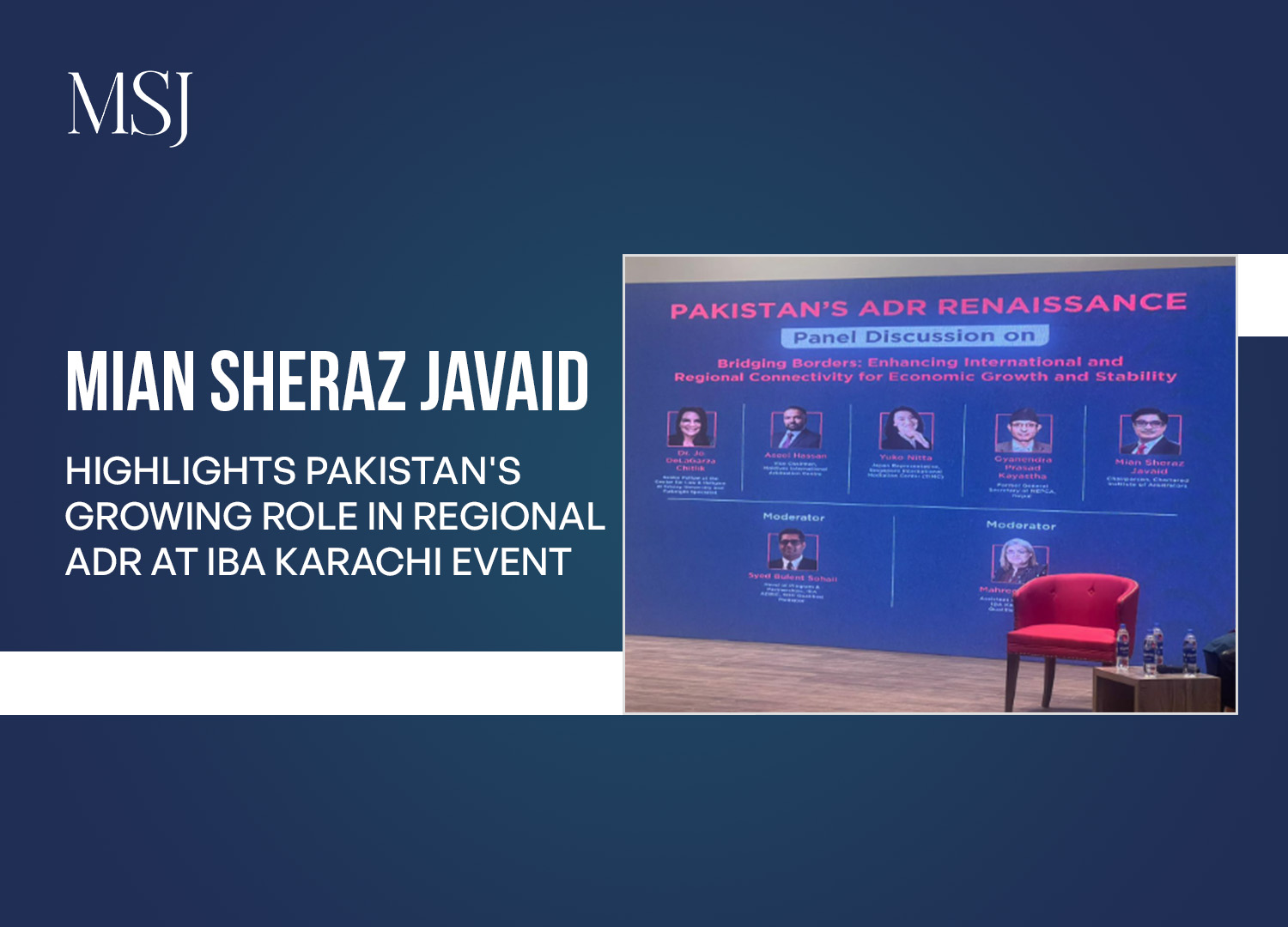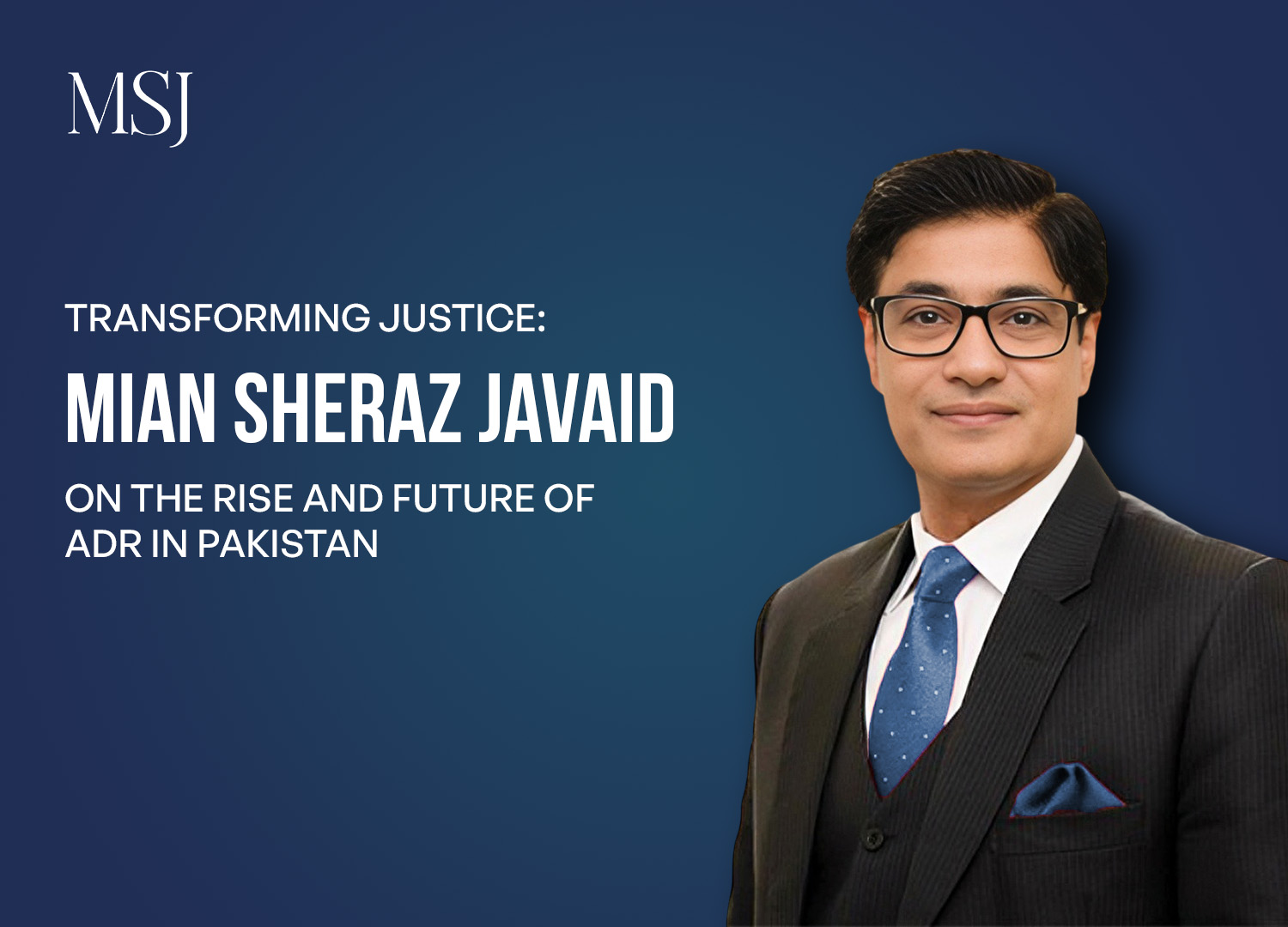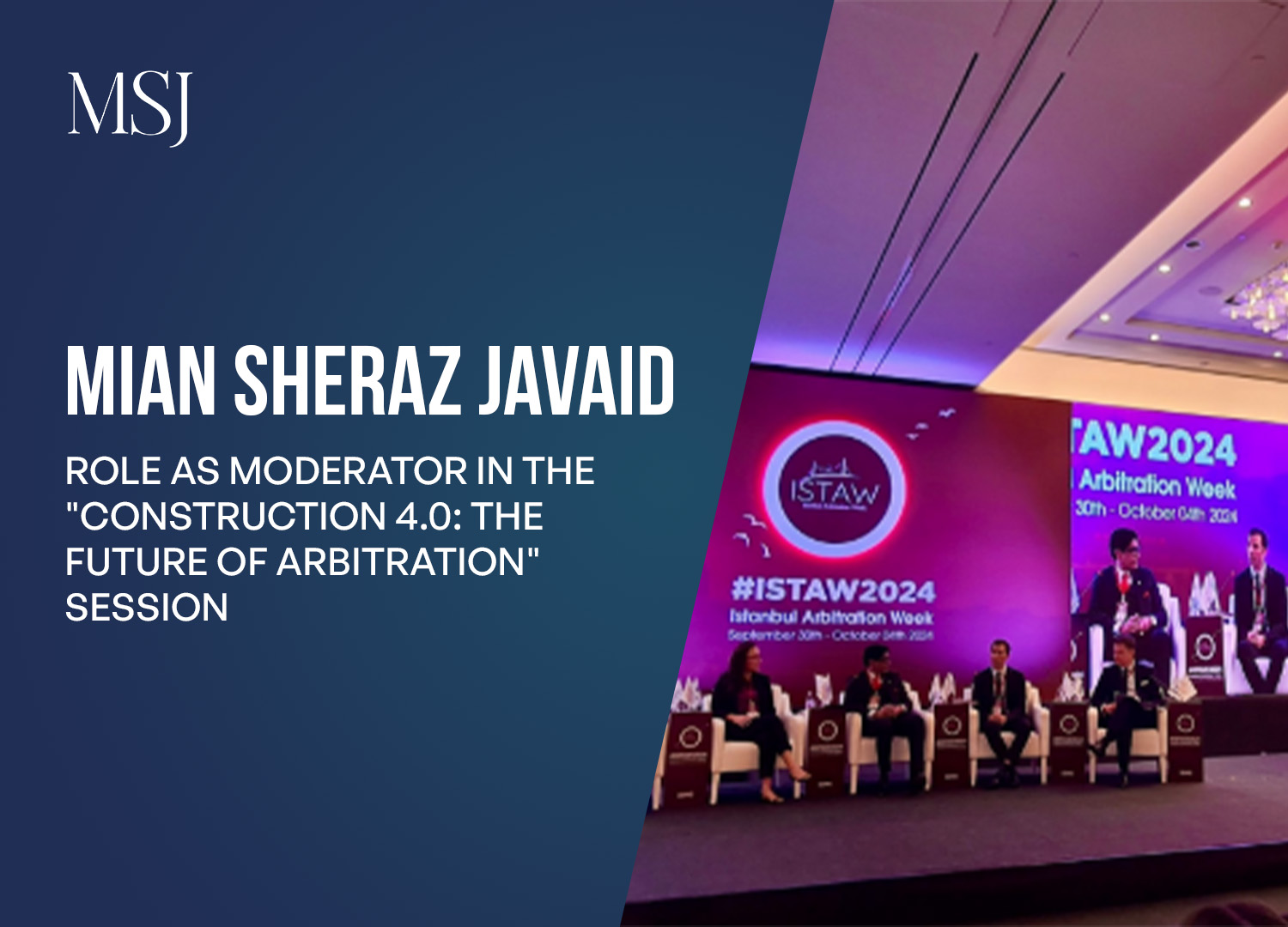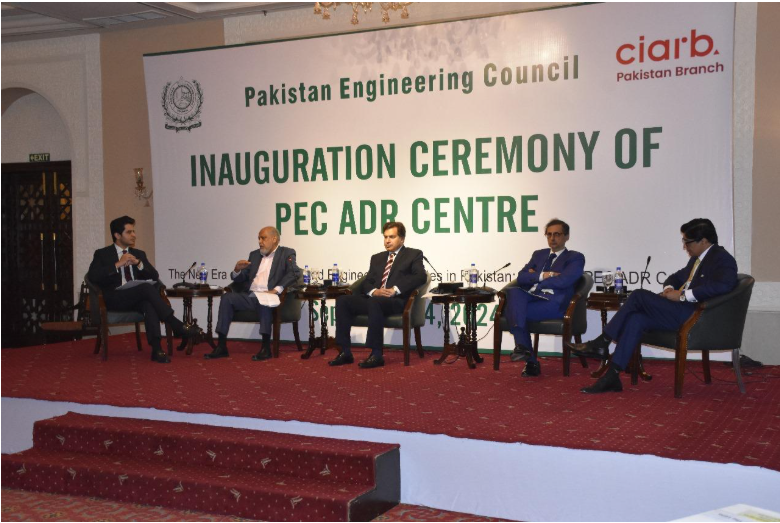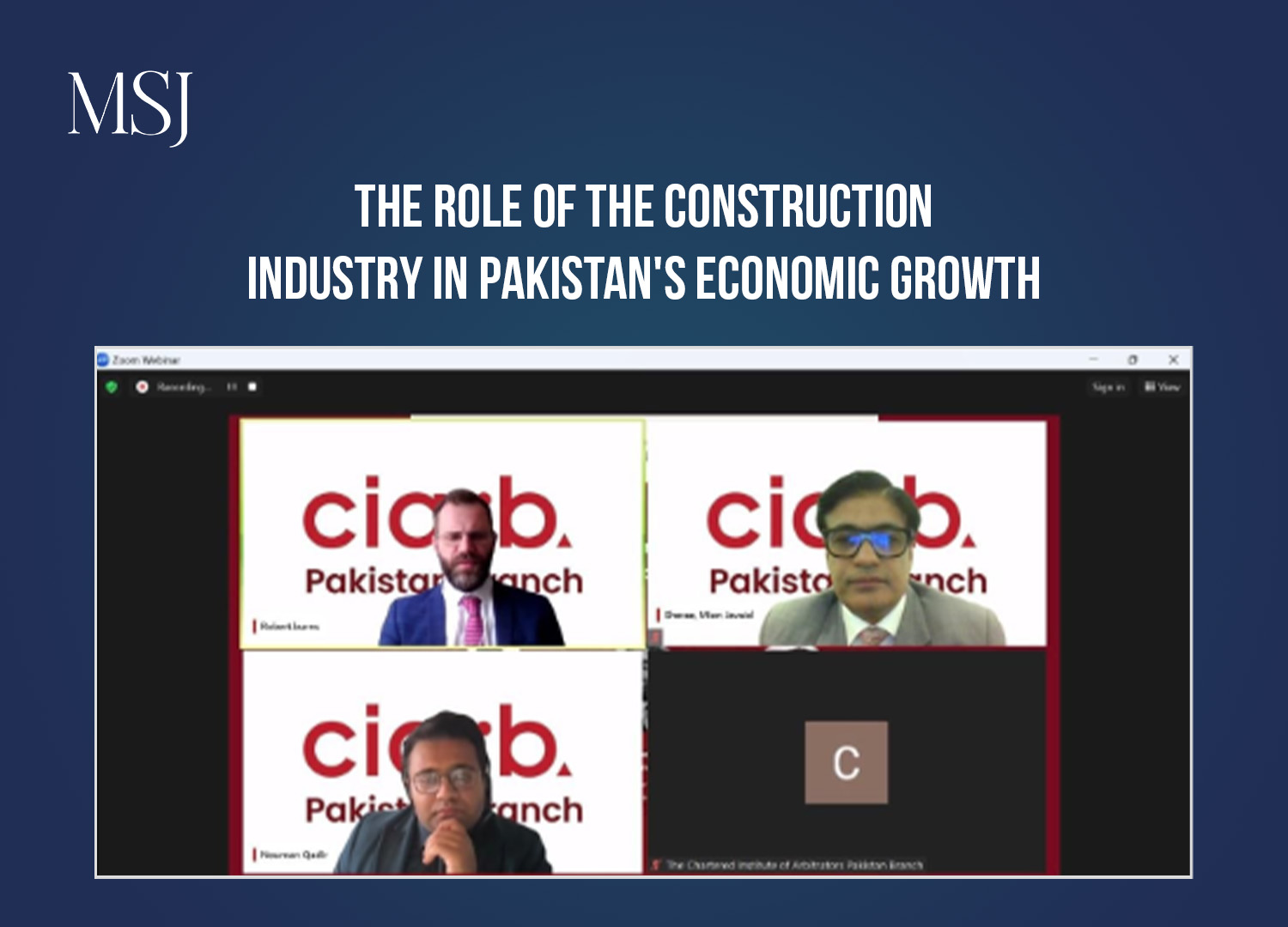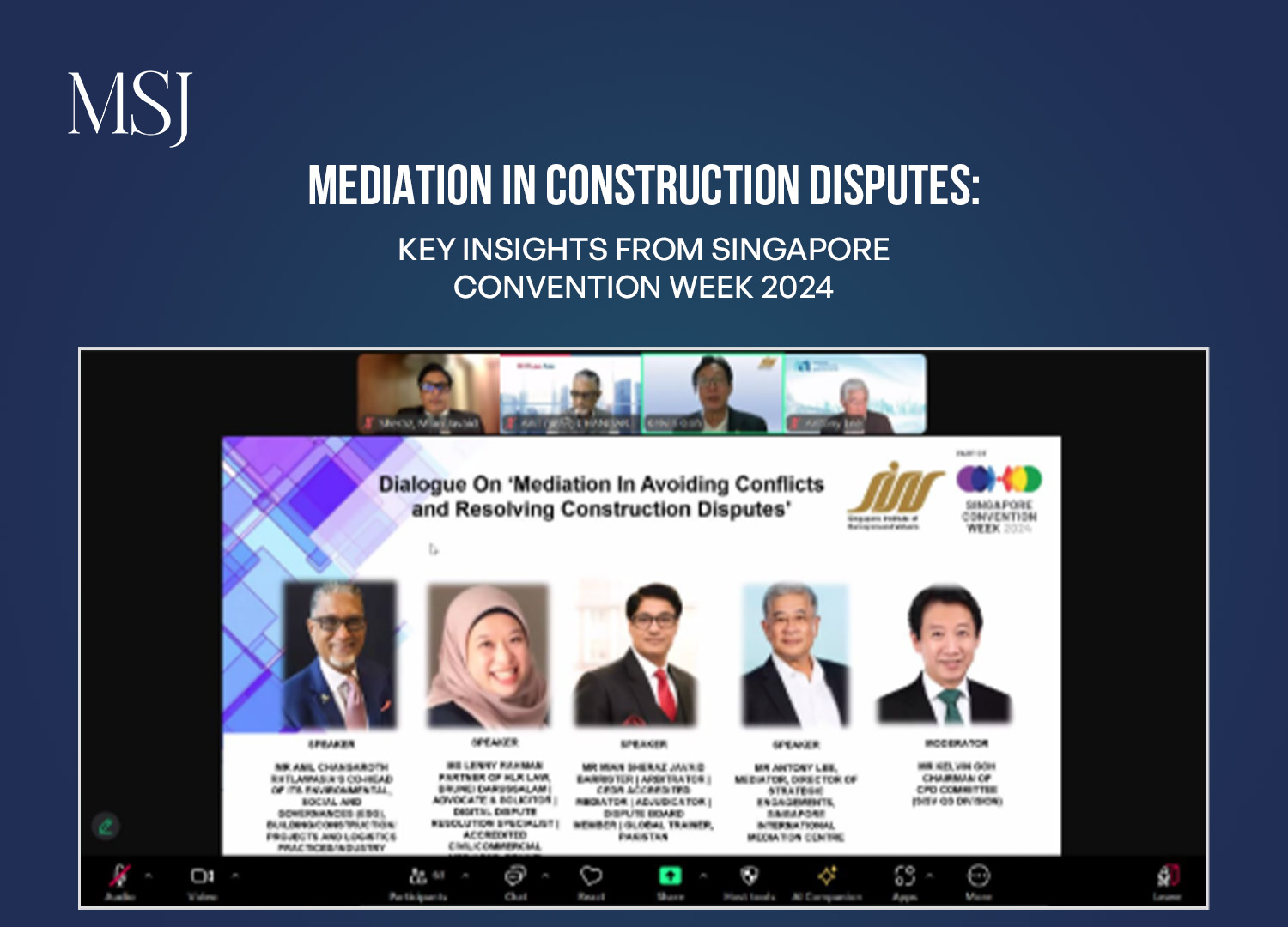Mian Sheraz Javaid Discusses Mediation’s Role in Legal System at Ciarb Pakistan Seminar
During a pivotal seminar organised by the Ciarb Pakistan Branch in collaboration with the High Court Bar Association Rawalpindi, which gathered esteemed justices, legal professionals, and young lawyers to discuss the future of alternative dispute resolution (ADR) in Pakistan, Mian Sheraz Javaid spoke on the topic "Evaluating Mediation’s Effectiveness: A Brief Analysis," contributing valuable insights into the potential benefits of integrating mediation into the legal ecosystem.
A Warm Welcome for ADR in Pakistan’s Legal Community
The seminar was graced by a distinguished panel of justices and legal experts, including Honourable Mr. Justice Jawad Hassan, Honourable Justice (R) Mushir Alam, Syed Bulent Sohail, Syed Imran Hassan Ali, and Barrister Osama Amin Qazi. The event demonstrated a warm and welcoming atmosphere towards incorporating ADR, particularly mediation, into Pakistan’s legal framework.
Mian Sheraz Javaid’s participation in the seminar focused on offering a comprehensive analysis of mediation’s effectiveness. By breaking down complex concepts and offering practical insights, he helped demystify the mediation process for the audience. Sheraz’s presentation addressed key questions surrounding the practical application of mediation in Pakistan, making a compelling case for its potential as a valuable tool to alleviate the burden on traditional courts and enhance the efficiency of the judicial system.
“Although litigation remains a cornerstone of our legal system, mediation offers an opportunity to resolve disputes more efficiently, cost-effectively, and amicably,” Sheraz stated in his address. “Mediation allows parties to preserve relationships and reach mutually agreeable solutions, which is particularly beneficial in civil disputes, business conflicts, and family matters.”
Sheraz's comments well captured the trend of the seminar, which was encouraging the young lawyers to look into the ADR techniques, especially mediation, as part of their legal toolkit. The good response received from the bar, bench, and attendees signified that people are keenly looking to mediation for solving the problem caused by the backlog of cases and further judicial delay.
Mediation as an Adjunct to the Justice System
An essential theme of the seminar was that mediation is the additional component that Pakistan can deploy along with the justice system of its own. Innovative ideas emerged through this event that mediation can add on to and not replace conventional court procedures. Various speakers made comments that the courts are imperative institutions to deliver justice, but the process of mediation may offer more prompt, adaptable, and informal resolution of the dispute, particularly in the context of civil and commercial sectors.
Quite remarkably, the seminar addressed the concept of creating a mediation centre within the precincts of the Rawalpindi Bench as part of the court annex to simplify the mediation process and make it easily accessible to the people. Such a centre could easily provide easy access to litigants for mediation services and therefore play a more significant role in lightening the congestion in courts which are often seen with long waiting lists of cases.
Sheraz supported this idea, emphasising that court-annexed mediation would not only reduce case congestion but also provide litigants with an opportunity to resolve disputes in a non-adversarial setting. “The establishment of a mediation centre would signal the beginning of a significant shift in how disputes are handled in Pakistan. It would send a strong message that we are committed to modernising our justice system and embracing ADR as a tool for improving access to justice,” Sheraz explained.
A Collaborative Effort for the Future of ADR
The seminar was also a momentous occasion for bringing together legal professionals in collaboration. Barrister Minaal Tariq, co-moderator of the event, played a great role in facilitating the smooth flow of discussions and engaging both senior legal figures and young practitioners. Talha Ilyas, the organizer of the event, was also appreciated for his efforts in bringing together such a diverse group of experts to discuss mediation and its future in Pakistan.
The seminar itself was testimony to the enthusiasm generated in the audience and highlighted that it is in the spirit of working together that change is brought about within the legal profession as a whole. Senior judges, young lawyers, and ADR experts coming together on one platform for the discussion on mediation both brings knowledge and shows the spirit of cooperation in taking forward the cause of ADR in Pakistan.
“I am grateful for the fresh energy and insights shared by all those who participated in this event,” Sheraz said. “The collaborative approach we witnessed at this seminar is the kind of momentum that we need to drive forward the adoption of mediation and ADR across Pakistan. It is clear that there is a shared commitment to modernising our legal practices and making dispute resolution more accessible and efficient.”
Looking Ahead: A Bright Future for Mediation in Pakistan
As the seminar concluded, participants left with a sense of optimism about the future of mediation in Pakistan’s legal system. There is now a growing awareness of the potential benefits of incorporating mediation into the judicial process, and discussions like those held at this seminar are laying the groundwork for future reforms.
Such is the possibility that the court annexed mediation centres are also on the horizon along with recognition of the growing efficiency of mediation that Pakistan stands to be in a position for leading ADR within the region. If momentum stays this way, improvements within the Pakistani legal system in the form of a reduction of backlogs, coupled with improving access to justice for all, will come about soon.
Reflecting on the seminar’s impact, Sheraz expressed his anticipation for more such events in the future. “This seminar has been an important milestone in our journey towards integrating mediation into Pakistan’s legal framework. I look forward to more discussions, collaborations, and events that will help move this process forward,” he said.
In conclusion, the Ciarb Pakistan Branch’s seminar in collaboration with the High Court Bar Association Rawalpindi was a key event that showcased the growing support for mediation within Pakistan’s legal community. The seminar not only provided a platform for insightful discussions but also laid the groundwork for future developments that could significantly reshape the way disputes are handled in Pakistan. With the legal community's collaborative spirit, Pakistan is poised for a future where mediation plays a central role in dispute resolution.


